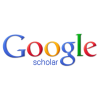Research Article
Aim & Scope
Bilecik Şeyh Edebali University Journal of Social Sciences is an international refereed journal. Our journal, which is a non-profit and a public university publication, aims to contribute to qualified scientific studies that have the potential to solve problems in the field of social sciences within the scope of institutional goals and social responsibility policies.
Bilecik Şeyh Edebali University Social Sciences Journal is a refereed journal that started its publication in 2016 and published twice a year (June-December). Our journal is open to article studies in the field of Social Sciences.
Author Guidelines
B. EVALUATION PROCESS
APA: (Pamuk, 2017: 86)
2. Two Authors;
Bibliography: Karaman, K. K., & Pamuk, Ş. (2010). Ottoman State Finances in European Perspective, 1500–1914. The Journal of Economic History, 70(3), 593-629.
APA: (Karaman ve Pamuk, 2010: 610)
3. Three Authors;
Bibliography: Altug, S., Filiztekin, A., & Pamuk, Ş. (2008). Sources of Long-Term Economic Growth for Turkey, 1880–2005. European Review of Economic History, 12(3), 393-430.
APA: (Altug vd., 2008: 412)
Bibliography: Ağaoğlu, S. vd. (1999). Van Ve Yöresi Kaynak Sularının Mikrobiyolojik, Fiziksel Ve Kimyasal Kaliteleri Üzerine Araştırmalar. Van Tıp Dergisi, 6(2), 30-33.
APA: (Ağaoğlu vd., 1999: 32)
5. Unknown Author;
Bibliography: Türkiye Cumhuriyet Merkez Bankası (TCMB) (2020). Enflasyon Raporu 2020-I. [Erişim: 31.01.2020, https://www.tcmb.gov.tr/wps/wcm/connect/92437f7d-6a9a-43ed-a351-e37b1881e49f/enfocak2020_i_tam.pdf?MOD=AJPERES&CACHEID=ROOTWORKSPACE-92437f7d-6a9a-43ed-a351-e37b1881e49f-m.SGRVT]
APA: (TCMB, 2020: 10)
Bibliography: Bloomberg HT (2020). Euro Bölgesi 4. Çeyrekte 6 Yılın En Düşük Büyümesini Kaydetti. [Erişim: 31.01.2020, https://www.bloomberght.com/euro-bolgesi-4-ceyrekte-6-yilin-endusuk-buyumesini-kaydetti-2245548]
APA: (Bloomberg HT, 2020)
6. Multiple publications belonging to the same author / institution should include the same year;
Pamuk, Ş. (2007a). The Black Death and The Origins of The ‘Great Divergence Across Europe, 1300–1600. European Review of Economic History, 11(3), 289-317.
Pamuk, Ş. (2007b). Economic Change in Twentieth Century Turkey: Is The Glass More Than Half Full?. The Cambridge History of Turkey, 4, 266-300.
(Pamuk, 2007a: 300)
(Pamuk, 2007b: 270)
7. Internet Sources;
Bibliography: Türkiye Cumhuriyet Merkez Bankası (TCMB) Elektronik Veri Dağıtım Sistemi (EVDS) (2020). Ticari ve Tüketici Kredileri (TL) Ağırlıklı Ortalama Faiz Oranları (Akım Veriler, %). [Erişim: 31.01.2020, https://evds2.tcmb.gov.tr/]
APA: (TCMB EVDS, 2020)
8. Holy Books;
Bibliography: Kur’an-ı Kerim. Rum 3/22.
APA: (Kur’an-ı Kerim, 3/22)
9. Archives;
Bibliography: Devlet Arşivleri Başkanlığı Osmanlı Arşivi, Hariciye Nezareti, Mektubi Kalemi (BOA, HR.MKT.), Dosya/Gömlek No 699/57.
APA: (BOA, HR.MKT., 699/57)
Ethical Principles and Publication Policy
Ethical Principles and Publication Policy
Bilecik Şeyh Edebali University Journal of Social Sciences is bound to the highest standards in publication ethics and published by the Committee on Publication Ethics (COPE), Directory of Open Access Journals (DOAJ), Open Access Scholarly Publishers Association (OASPA) and World Association of Medical Editors (WAME) Adopts ethical publishing principles; Address for principles expressed under Principles of Transparency and Best Practice in Scholarly Publishing: [https://publicationethics.org/resources/guidelines-new/principles-transparency-and-best-practice-scholarly-publishing] All articles submitted are original should not be published and not in the review process in another journal. Each article is double-blinded by one of the editors and at least two reviewers. Plagiarism, duplication, false authorship / denied authorship, research / data fabrication, article slicing, slicing publication, copyright infringement and hiding of conflict of interest are considered as unethical behaviors. All articles that do not comply with the accepted ethical standards are published. This includes possible illegal, incompatible articles identified after the publication.
Price Policy
Bilecik Şeyh Edebali Üniversitesi Sosyal Bilimler Dergisi'nde, makalelerin yayınlanması, okunması ve indirilmesi ücretsizdir, hiçbir işlem için ücret talep edilmemektedir. Aynı şekilde, hakem değerlendirme sürecinde de ücret alınmamaktadır.
Indexes
Journal Boards
Baş Editör

1978 yılında Yozgat’ta dünyaya geldi. İlk, orta ve lise öğrenimini Yozgat’ta tamamladı. 1995’te girdiği Mimar Sinan Üniversitesi Fen-Edebiyat Fakültesi Türk Dili ve Edebiyatı Bölümünden 1999 yılında mezun oldu. Marmara Üniversitesi Türkiyat Araştırmaları Enstitüsü, Eski Türk Edebiyatı Bilim Dalında 2002 yılında yüksek lisansını, 2009 yılında da doktorasını tamamladı. 1999-2011 yılları arasında İstanbul’da Milli Eğitim Bakanlığına bağlı okullarda Türkçe ve Türk dili ve edebiyatı öğretmenliği yaptıktan sonra 2011 yılında, hâlen görev yapmakta olduğu Bilecik Şeyh Edebali Üniversitesinde çalışmaya başladı. Bu süreçte 2014-2016 yılları arasında iki yıl Ürdün Üniversitesi Yabancı Diller Fakültesinde misafir öğretim üyesi olarak görev yaptı. 2017 yılında Klasik Türk Edebiyatı alanında doçent, 2022 yılında da profesör ünvanını aldı. Demirkazık; kıyafetname, lugaz, miraciye, pendname gibi türlere dair çalışmaların yanında metin şerhi, nazire mecmuası, manzum sözlükler, klasik Türk şiirinde âdet ve gelenekler, harf ve kelime oyunları, Osmanlı dönemi Türk tercüme edebiyatı ile klasik Türk şiirinde maddi ve manevi kültür unsurlarına ilişkin çalışmalar da yapmıştır. Yazarın; Mustafa Fennî Divanı (İnceleme-Tenkitli Metin), Abdülmecîd Bin Şeyh Nasûh’un Manzum Kıyafetnâme’si (İnceleme-Metin-Dizin), Abdî’nin Bâgçe Adlı Manzum Bostan Tercümesi (İnceleme-Metin-Dizin), Muradî Sultan III. Murat, Mahzenü’l-Esrâr (İnceleme-Metin), Fıtnat Hanım, Rodosçuklu Fennî Divanı isimlerini taşıyan yedi kitabının yanında ulusal ve uluslararası dergilerde yayımlanmış çok sayıda makalesi bulunmaktadır.
Editör

Secretariat


İngilizce Dil Editörü
Editorial Board




Advisory Board


1977 yılında Ankara’da doğdu. TED Ankara Koleji’nden 1995, Anadolu Üniversitesi Güzel Sanatlar Fakültesi Seramik Bölümü’nden 2000 yılında mezun oldu. Aynı üniversitenin Sosyal Bilimler Enstitüsü Seramik Anasanat dalında 2002 yılında yüksek lisans eğitimini Artistik Seramik Biçimlendirmede Doku başlıklı teziyle, 2012 yılında Güzel Sanatlar Enstitüsü Seramik Anasanat Dalı Sanatta Yeterlik Programını Seramik Sanatında Alternatif Bir İfade Aracı Olarak Atık Seramik Kullanımı başlıklı teziyle tamamladı.
Uzun yıllar seramik endüstrisinin önemli kuruluşlarında tasarımcı olarak çalıştı. 2007 yılından itibaren kariyerine akademisyen olarak devam etmeye karar verdi. Seramiklerini biçimlendirmede daha önce başka işlevleri olmuş; buluntu, yadigar, kırık, eski, satın alınmış ve çoğunlukla endüstri atıklarını kullandı. Atık seramikleri kullanarak biçimlendirdiği kavramsal ve politik içerikli eserleriyle yurt içinde ve yurt dışında pek çok etkinliğe katıldı, farklı müze, özel ve kamu koleksiyonlarına eserleri kabul edildi. Sekiz kişisel sergi açtı.
2019 yılında Sanat Kurumu Derneği Seramik/Cam Dalında Yılın Sanatçısı olarak seçilen Elif Aydoğdu Ağatekin; 2012 yılında 71. Devlet Resim ve Heykel Sergisi Seramik Yarışması’nda, Başarı Ödülü’nü, 2011 yılında ilki düzenlenen İstanbul Rotary Kulübü Sanat Yarışması’nda Başarı Ödülü’nü, 2010 yılında Gizem Frit Seramik Yarışması’nda 3’üncülük, 2010 yılında 11. Altın Testi Seramik Yarışması’nda 2’ncilik Ödülünü ve 2000 yılında 6. Altın Testi Seramik Yarışması’nda ise Mert Optik Özel Ödülü’nü kazandı. Seramik Sanatı Eğitimi Değişimi Derneği kurucu üyesi, Türk Seramik Derneği ve merkezi İsviçre-Cenevre’de bulunan Uluslararası Seramik Akademisi (IAC) üyesidir.
Halen Bilecik Şeyh Edebali Üniversitesi Güzel Sanatlar ve Tasarım Fakültesi Seramik ve Cam Tasarımı Bölümü’nde profesör olarak görev yapmaktadır.



Section Editors




Bilecik Şeyh Edebali Üniversitesi İktisadi ve İdari Bilimler Fakültesi Maliye Bölümünde Doçent olarak görev yapmaktadır.






1993 yılında İstanbul'da doğdu ve lisans öncesi eğitimini de aynı şehirde tamamladı. 2015 yılında Marmara Üniversitesi İktisat Fakültesi Maliye Bölümünden mezun oldu. 2020 yılında aynı üniversitenin Sosyal Bilimler Enstitüsü Maliye Teorisi programında yüksek lisansını tamamladı. Halen Marmara Üniversitesi Sosyal Bilimler Enstitüsü Maliye Teorisi programında doktora eğitimine devam etmektedir. 2018 yılından itibaren Manisa Celal Bayar Üniversitesi Salihli İktisadi ve İdari Bilimler Fakültesi Maliye Bölümünde Araştırma Görevlisi olarak çalışmaktadır.











